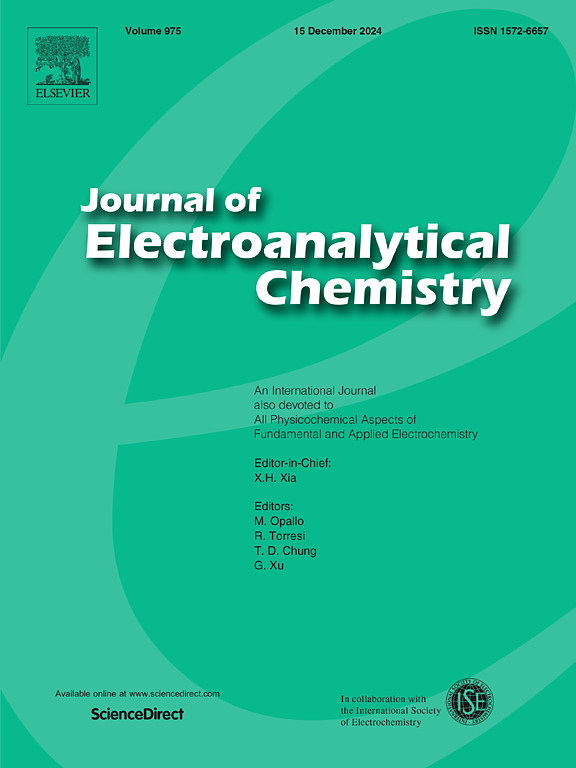基于铂族金属的高性能锂-氧电池电极:微型综述
IF 4.1
3区 化学
Q1 CHEMISTRY, ANALYTICAL
引用次数: 0
摘要
在能源存储领域,锂-氧(Li-O2)电池的发展引起了广泛关注,因为它们有可能给电动汽车带来革命性的变化。长期以来,可持续发展的理念将铂族金属(PGMs)定位为潜在的革命性物质,尤其是在汽车行业。铂族金属具有催化活性,可提高锂-氧化物电池的性能,这可能是汽车电气化行业向前迈进的一大步,并有可能为运输以外的更长寿命电池铺平道路。因此,本综述将从锂-O2 电池原理及其挑战的概述入手,探讨基于 PGMs 的电催化剂用作锂-O2 电池电极材料的研究进展。然后详细探讨了如何利用基于 PGMs 的电催化剂作为电极材料来提高二氧化硫锂电池的性能。最后,它探讨了阻碍将 PGMs 完全融入电池技术的其余障碍,并对 PGMs 在二氧化硫电池技术中的现状和未来可能性提出了见解。本文章由计算机程序翻译,如有差异,请以英文原文为准。
Platinum group metals-based electrodes for high-performance lithium-oxygen batteries: A mini-review
In the realm of energy storage, the evolution of lithium-oxygen (Li-O2) batteries has garnered substantial attention, owing to their potential to revolutionize electric vehicles. For a long time, ideas for sustainable development have positioned platinum group metals (PGMs) as potentially revolutionary, especially in the automotive industry. Intended to enhance Li-O2 battery performance, PGMs are appealing due to their catalytic activities and this might be a big step forward for the electrification automotive industry and possibly pave the way for longer-lasting batteries used for reasons other than transportation. Therefore, this review explores progressions in PGMs-based electrocatalysts used as electrode materials for Li-O2 batteries, starting with an overview of the Li-O2 battery principle and its challenges. It then examines in detail the utilization of PGMs-based electrocatalysts as electrode materials for improving Li-O2 battery performance. Finally, it addresses the remaining hurdles preventing the full integration of PGMs into battery technologies, offering insights into the current status and future possibilities for PGMs in Li-O2 battery technology.
求助全文
通过发布文献求助,成功后即可免费获取论文全文。
去求助
来源期刊
CiteScore
7.80
自引率
6.70%
发文量
912
审稿时长
2.4 months
期刊介绍:
The Journal of Electroanalytical Chemistry is the foremost international journal devoted to the interdisciplinary subject of electrochemistry in all its aspects, theoretical as well as applied.
Electrochemistry is a wide ranging area that is in a state of continuous evolution. Rather than compiling a long list of topics covered by the Journal, the editors would like to draw particular attention to the key issues of novelty, topicality and quality. Papers should present new and interesting electrochemical science in a way that is accessible to the reader. The presentation and discussion should be at a level that is consistent with the international status of the Journal. Reports describing the application of well-established techniques to problems that are essentially technical will not be accepted. Similarly, papers that report observations but fail to provide adequate interpretation will be rejected by the Editors. Papers dealing with technical electrochemistry should be submitted to other specialist journals unless the authors can show that their work provides substantially new insights into electrochemical processes.

 求助内容:
求助内容: 应助结果提醒方式:
应助结果提醒方式:


